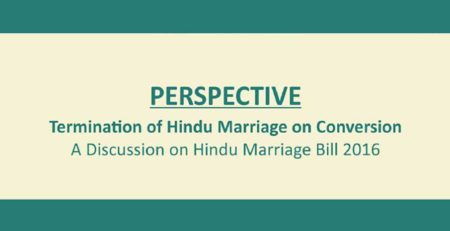The Law of Tawhin-i-Risalat: A Social, Political and Historical Perspective
In view of the ongoing debate on blasphemy laws in Pakistan, an important article by Dr Mahmud A. Ghazi (late) – earlier published in Pakistan between Secularism & Islam: Ideology, Issues & Conflict, Institute of Policy Studies, Islamabad, 1998 – is being shared here.
The West’s all‑out domination, which has been on the rise for the last two centuries, has resulted in many a misunderstanding about Islam. Theoretically, it is conceded that Islam has its own worldview, which determines its followers’ attitude toward life, universe and their place in it. At the same time, there is a general feeling among the Muslims that our Western friends and their Westernized followers do not appreciate the Muslim position on many important issues. If the worldview of a people has a role to play in shaping their ideas and opinions, then variance is inescapable and has to be conceded: a society assigning primary importance to its moral fabric and family life has to be different from the one giving preference to economic considerations and individual interests. The nature of relationship between the spouses, for example, in a Muslim society has been different from the one in the West.m are not ends in themselves but are only a means to achieve certain objectives. The purpose, according to the Qur’ān, is to build human personality in such a way that it becomes the agent of the Divine plan and help restructure a moral, just world.1 This necessitates that man should be conscious of his ultimate accountability at some later stage for all his inner and outer deeds.2 This accountability should be total and inevitable so that no individual entertains hope to escape it. Without this inevitable accountability to which humans have to submit themselves, there can be no real justice in a society.
A society based on Islamic principles must endeavor to pass the test of this accountability. For if this consciousness is weakened, then the strong material desires and physical propensities of men and women can break loose. By the same token, an Islamic state or for that matter a Western state cannot be impartial to its moral ideals. In the recent past, we have witnessed the Soviet Union playing an active ideological role in designing national programs and international policies. This is equally true of “modern” Western states, which are in no way impartial to the philosophical basis of their existence. For instance, the existence of political parties and adult franchise, free‑market economy and liberal social framework is the cornerstone of the Western system. The West’s commitment to these ideals is so uncompromising that at times it appears to be bordering on political and intellectual strangulation of Third‑World nations.
It seems that the modern West and its clones in the East are not prepared to concede freedom to the Muslims to bypass the occidental values. Even democratic dispensation is unacceptable to the West if it does not promote Western social values, its economic models, and political interests. The Muslims view the happenings in Algeria as the West’s refusal to concede its people the right of self determination. The French proscription of some two dozen books authored by renowned Muslim scholars is hardheaded prejudice. Curiously, the critics of the ban on Rushdie’s book have failed to raise their voices against this “civilized” censor. The French reaction to some innocent girls covering their heads is again a case of prejudice against the Muslims.






